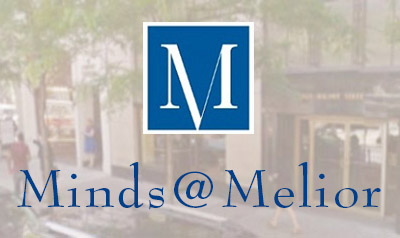The Secular/Cultural Jewish Segment: More Than Meets the Eye
Ever since the publication of the Pew Study on American Jewry in late 2013, there has been a lot of hand wringing over findings that suggest a Jewish community in decline. Headlines blasted the dire news – “1 in 4 Jews are losing their religion!” “Intermarriage rates continue to rise!” “Major shift in Jewish identity noted as number of Secular/Cultural Jews grows!”
For many community leaders, the last point is particularly troublesome. When viewed on traditional measures of engagement – synagogue affiliation, raising their children as Jews, marrying other Jews, supporting Jewish causes and communal institutions – it is clear that Secular/Cultural Jews are less engaged in the community as a whole. And while that is all true… let’s not write off this growing segment just yet.
You Might Be Surprised To Learn…
Melior’s recent research reveals some surprising, if counter-intuitive, insights into the relationship this growing segment of American Jewry has with the established Jewish community. In one community we studied, for example…
- 35% donated to their local Jewish Federation in the past year
- 30% belong to a religious institution (synagogue/temple/shul)
- 22% send/sent a child to Jewish Day School
Strategies to Strengthen the Connection
And, in our experience, these results are not unique. Given this, what actions can community leaders take to strengthen the connection between Secular/Cultural Jews and the established Jewish community? Here are some strategies to consider:
Segment. Recognize that not all secular/cultural Jews are alike, and develop outreach strategies tailored to the sub-segments (i.e., those who are connected to traditional communal institutions vs. those who aren’t).
Simplify. Meet Secular/Cultural Jews ‘where they live’ – both figuratively and literally. Offer events/programs tailored to their interests (e.g., food, books, social causes, etc.) and bring these programs to more convenient locales. Our research shows that secular/cultural Jews often live on the outskirts of a community so make it easy for them to participate.
Stay the course. Like many others within the Jewish community, the relationship of Secular/Cultural Jews to Jewish communal organizations and causes may wax and wane over time due to changes in personal circumstances, interests, and experiences. Keeping lines of communication open yields opportunities to deepen the connection when the opportunity presents itself.
For more information contact Susan J. Levine at [email protected] / 215-545-0054 ext 107 or Linda McAleer at [email protected] / 215-545-0054 ext 104.

